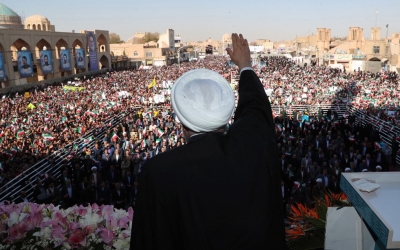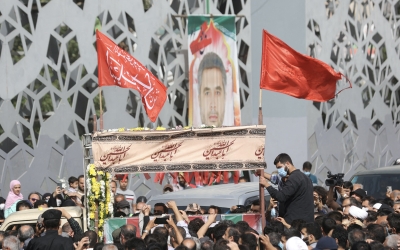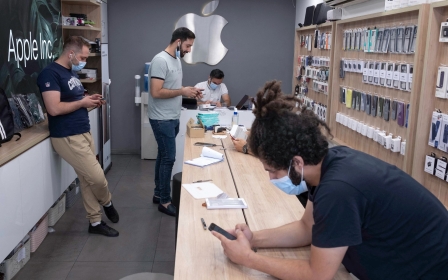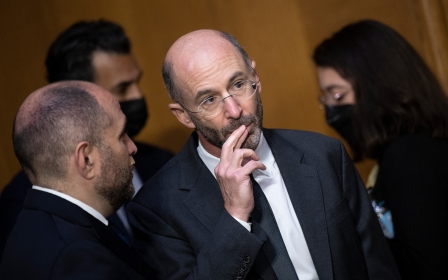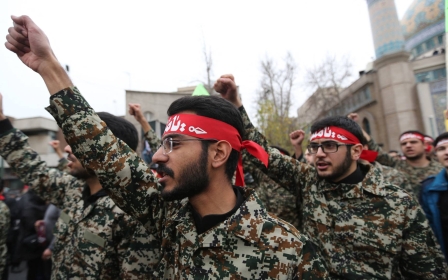Iranian press review: Tehran-Moscow oil export rivalry flowing fast
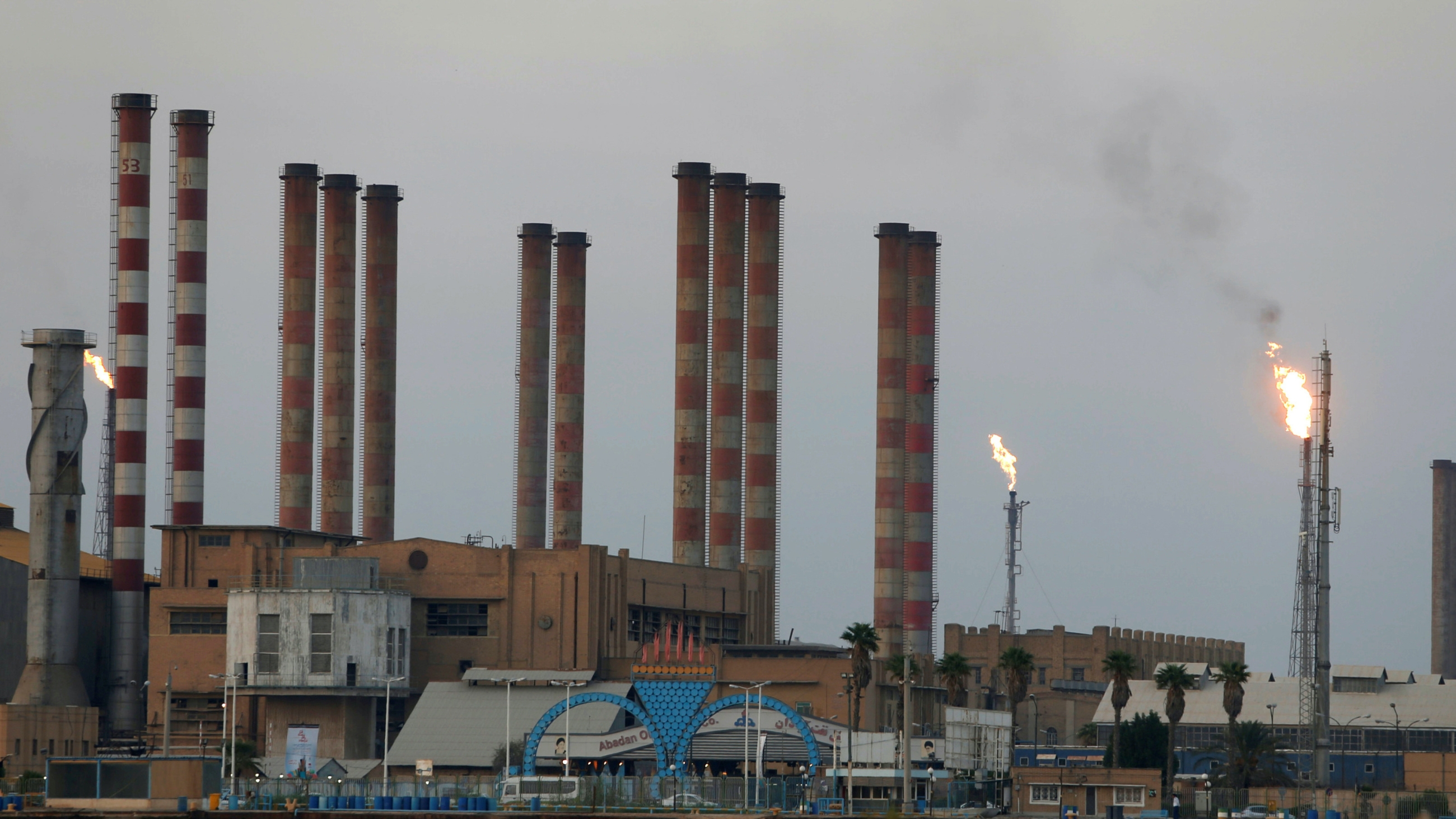
Iran and Russia race to sell cheap oil
Political allies Iran and Russia have turned into economic competitors in the global oil market since the beginning of the war in Ukraine, local media report.
Following international sanctions on Russia's oil and gas exports, Moscow sold its product at a heavily discounted rate, which has affected Iran's exports of cheap oil.
Since 2018, Iran has used the same strategy to bypass international sanctions, however experts said that Iran could no longer entice China without selling its oil at more of a discount.
"Not offering more discount on our products would have [a negative] impact on our sales market," Iran's former ambassador to China, Seyed Mohammad Hossein Malaek, told the Ilna news agency.
According to the Arman daily, Russia's new strategy to sell oil at a discounted price would, in the long term, remove Iran from China's oil market.
"The increasing discounts that Russia offers to export crude oil is dangerous for Iran, specifically in the China market," wrote Arman.
The daily added that the same scenario would happen to Iran's gas exports to Iraq and Turkey if Russia continued decreasing the price of its exports.
Meanwhile, Iranian steel manufacturers said that Russia's new discount for iron and steel exports has also affected their sales, with Iranian firms unable to export any products in April and May, the Shargh daily reported.
Shargh wrote that Russia's steel exports have replaced Iran's in Afghanistan and China.
Anger over air pollution
For the second time in two months, Iran's capital Tehran has ranked as the world's most polluted city, provoking Iranian anger over the government’s failure to tackle the country's environmental crises.
Under the headline, "What to do without air", the Aftab daily criticised authorities for not finding a solution to the air pollution that has caused the closure of schools and government offices in Tehran and 36 other cities.
'Please choose how you would like to die in Iran...'
- Iranian social media account
"We should highlight this bitter reality that the officials do not want to do anything [to solve the problem]," wrote the daily.
"Talking is the only thing they are good at… talking without solving any problem.”
Iranians have also taken to social media to voice their frustration.
"Please choose how you would like to die in Iran: death in an earthquake, death due to air pollution, death in a plane crash, death in a car accident, death with dust, death due to soaring prices, death by hanging…", one social media user wrote on Twitter.
Since April, several waves of sand storms have hit Iranian cities. Officials in Tehran have blamed the phenomenon on Iraq and Turkey's dam projects.
Return to Vienna urged following IRGC colonel killing
An Iranian political analyst said that returning to the nuclear negotiations in Vienna would be the best response to the assassination of a senior member of the Islamic Revolutionary Guard Corps (IRGC).
The indirect talks between Iran and the US to revive the 2015 nuclear deal in Vienna have been suspended since April.
"If the nuclear deal is restored, the international community would recognise Iran's nuclear programme, and Israel would be isolated," Mehdi Zakerian, an Iranian political scientist, told the pro-reformist Shargh daily.
"In this case, Israel would no longer have the ability to carry out terror, sabotage operations or espionage because it would face a reaction from the international community.”
'Israel or whoever was behind this terror was worried about the resumption of the nuclear talks'
- Mehdi Zakerian, Iranian analyst
On Sunday, two gunmen assassinated Sayad Khodai, an IRGC colonel, in central Tehran. The country's intelligence services have blamed Israel for the killing.
Israeli officials have neither claimed nor denied responsibility for the assassination, though the Israeli Ynet news website hailed it as an "impressive achievement".
Zakerian and many other Iranian experts stressed that Khodai's assassination was related to Iran's nuclear programme.
"Israel or whoever was behind this terror was worried about the resumption of the [nuclear] talks," Zakerian said.
However, the Javan daily, affiliated with the IRGC, wrote that the assassination was related to Iran's achievements in Syria and warned that Khodai’s killing may mark the beginning of a new phase of military confrontation between Iran and Israel.
"Now Israel is concerned about Iran's infiltration into the region close to the Israel-Syria border," Javan wrote.
The daily claimed that following the withdrawal of Russian troops from parts of Syria, Lebanon's pro-Iran Hezbollah forces have taken control of some Syrian territories in the Golan Heights, close to the Israeli border.
"These changes have concerned the Israelis over a shift in the security equation, giving an upper hand to Iran and its allies in the region," the daily wrote.
Oman sought to break nuclear deadlock
Sources in Tehran believe that President Ebrahim Raisi's one-day visit to Oman on Monday was aimed at supporting Muscat's mediation between Iran and western powers to end a deadlock in the Vienna talks.
Seyed Jalal Sadatian, a former Iranian diplomat in London, told the IQNA news agency that Raisi's trip to Oman was a response to the European Union's Iran nuclear talks coordinator Enrique Mora and Qatar's Emir Sheikh Tamim bin Hamad Al Thani’s visits to Tehran.
"It is perceived that officials from other countries were also present in Oman during the president's visit and direct or indirect negotiations took place there," Sadatian told IQNA.
"We can say that the focus of current developments is related to the nuclear deal and [reaching] an agreement between Iran and the US, which would result in the lifting of [international] sanctions.”
Meanwhile, Iranian government media wrote that Raisi had visited Muscat to improve economic and political ties between the two countries.
However, Iranian academic and veteran foreign policy expert, Ali Bigdeli, told Fararu that the only reason behind Raisi's trip was the nuclear deal.
"It is also possible that the two sides have reached an agreement about the American prisoners [in Iran]," Bigdeli was quoted as saying.
*The Iranian press review is a digest of reports that are not independently verified as accurate by Middle East Eye
Middle East Eye propose une couverture et une analyse indépendantes et incomparables du Moyen-Orient, de l’Afrique du Nord et d’autres régions du monde. Pour en savoir plus sur la reprise de ce contenu et les frais qui s’appliquent, veuillez remplir ce formulaire [en anglais]. Pour en savoir plus sur MEE, cliquez ici [en anglais].


